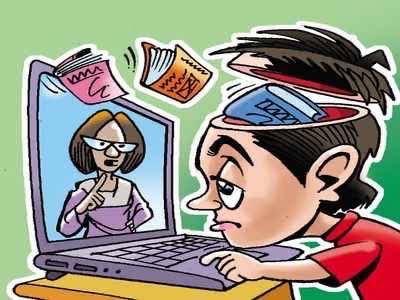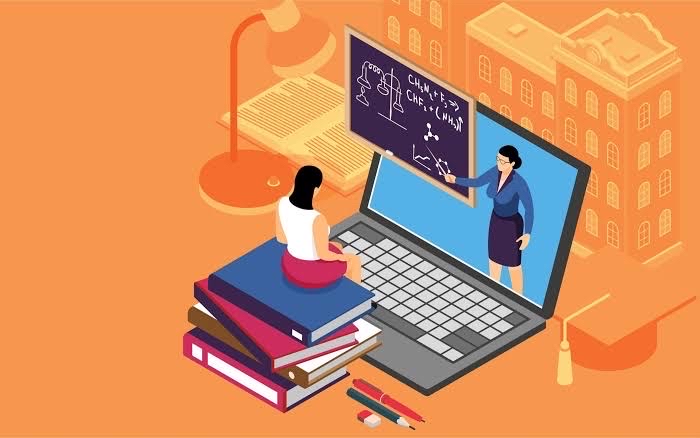
WHERE THE REALITIES LIE; THE RETURN OF FACE-TO-FACE CLASSES
ARE WE READY?
We all value education, yet it does not merely rely on obtaining knowledge, their well-being, and welfare matter too.
#LigtasNaBalikEskwela
NIGHTMARES WITHIN THE MODULAR LEARNING SYSTEM
Many students are expected to adopt distance modular learning because we still don’t have an idea when this global pandemic ends. We are taught how to have time management and practice being productive as distance learning greatly changed how the students live. It was different way back when students were in a face-to-face setting because it is something that they are already used to and familiar with. When different media outlets announced that we are now in a global pandemic, schools in the different countries also announced the cancellation of classes that unfortunately, turned into distance learning. At first, students were trying to keep up with the new normal but as time goes by, they are now slowly adapting to modular learning.
It has now been over 1 year since the implementation of modular learning and I believe that there are still amount of students who are still not adapting to the modular while some already have. Those who already have are mostly keeping up now with the school activities. Because of the everyday modular learning, students tend to already realize what are the things that they need to have in order to not be left out by their teachers and classmates. Because of the adaptation to modular learning, students already know how to prioritize studies from the things that are not really meant to be prioritized and the importance of it to their academics. It was hard to adapt to this kind of new normal but we have no choice but to still continue what we started.
THE REALITY OF MODULAR DISTANCE LEARNING SYSTEMS, PER SE.
THE REALITY OF MODULAR DISTANCE LEARNING SYSTEMS, PER SE.
School and Education perform an important and fundamental role in forming the lives and future of the students. With that being said, teachers and educators are one of the most essential instruments in providing and dispensing excellence through quality learning. Nonetheless, due to the emergence of the Coronavirus, most commonly known as the COVID-19 an infectious disease caused by the SARS-CoV-2 virus, not just in the Philippines but globally, plenty of changes, alternatives, and transitions transpired in the educational system scheme. One of the many changes that happened is the manner of teaching that was enforced and implemented by the Department of Education.
The continuously prevailing COVID-19 crisis has mandatorily obliged various educational systems to adopt and espouse alternative means instead of face-to-face learning. Several and education systems shifted activities through online learning platforms, to allow students to at least continue their education despite school closures despite the implementation of different rules and regulations that are supposed to be followed strictly during the pandemic. As stated by Bagood (2020), The shift in teaching and learning in schools towards modular distance learning made it much more arduous and complicated for teachers, admins, and school personnel in the path of ensuring high-quality education. That being said, the Department Of Education (DepEd) officers are substantially finding and adjudicating every possible way to address these problems and continue to persistently empower the teachers and their students to be more competent and productive despite dilemmas that the modular distance learning space obtains.
At first, The very idea and just the concept of studying or learning at home give students this uncanny and unearthly feeling of freedom and the amenity of being less coerced and impelled since they do not have to go to school every day, and just focus on acquiring knowledge and attending classes virtually. Nevertheless, On the contrary, this type of learning approach, particularly the modular distance learning course has a lot of ordeals and adversities, especially in its unprecedented system, per se.
THE BLOOD-CURDLING IMPENDING RETURN OF FACE-TO-FACE CLASSES
THE BLOOD-CURDLING IMPENDING RETURN OF FACE-TO-FACE CLASSES
Reopening the school to face-to-face physical processes and interactions must be cautiously and thoroughly deliberated beforehand to ensure and guarantee the safety and welfare of teachers, students, admins, and school staff in levels, especially the regulations of physical distancing, mandatory use of face masks, and face shield, and being fully vaccinated that will serve as immunity and resistance to the highly infectious COVID-19 virus.
As argued by Sarmiento (2021), The planning and implementation of various school health protocols within this COVID-19 pandemic should be corroborated, supported, and sustained by the unerring and factual data provided by different institutions. On December 11, 2020, the World Health Organization (WHO) officially published a catalog to help schools reopen and be carefully prepared and organize in case of a possible resurgence of COVID19. The World Health Organization quoted: The directory checklist is aligned and arrayed with and predicated on the existing varied WHO measures and guidelines with regards to the Coronavirus which addresses preventive health protocols regarding i) respiratory and hand hygienics labels; ii) distant socializing or physical distancing; iii) compulsory use of facemasks in schools; iv) ensured sanitation and ventilation of areas around the campus, and v) following subsequent procedures and policies to isolate anyone that catches symptoms of COVID-19 virus. These checklists will certainly be able to help authorities and school officials in assuring the security and protection of students and teachers in adherence and compliance to various public health protocols at this time of the pandemic.
In the Republic of the Philippines, the impending opening of face-to-face classes has been aggressively and vigorously advocated by the, which backs the recommendation or proposal that is reportedly being reviewed by the Interagency Task Force (IATF). The arguments that favor the return of face-to-face classes are in all respects valid but are untimely and premature, these arguments and reasoning fail to take into consideration the reality of the ongoing pandemic that we are having in our nation. In different countries where the vaccination measures are greatly elevated, campuses and schools have reopened already, safely following the regulations and protocols in place. Yes, we are all in grave need of physical learning or face-to-face classes, but we have to accept the reality that our country is not ready for this kind of comeback system.
REFERENCES
Acala, M. & Castroverde F. (June 2021) "Modular distance learning modality: Challenges of teachers in teaching amid the Covid 19 pandemic." ResearchGate. Retrieved from: https://www.researchgate.net/publication/352746170_Modular_distance_learning_modality_Challenges_of_teachers_in_teaching_amid_the_Covid-19_pandemic
Sarmiento C., Sarmiento P. & Tolentino Rina (2021, February 8 ). "Face-to-face classes during COVID-19: a call for deliberate and well-planned school health protocols in the Philippine context". Journal of Public Health. Retrieved from: https://www.ncbi.nlm.nih.gov/pmc/articles/PMC7928711
World Health Organization (2020, December 11). "Checklist to support schools re-opening and preparation for COVID-19 resurgences or similar public health crises". World Health Organization. Retrieved from: https://www.who.int/publications/i/item/9789240017467




